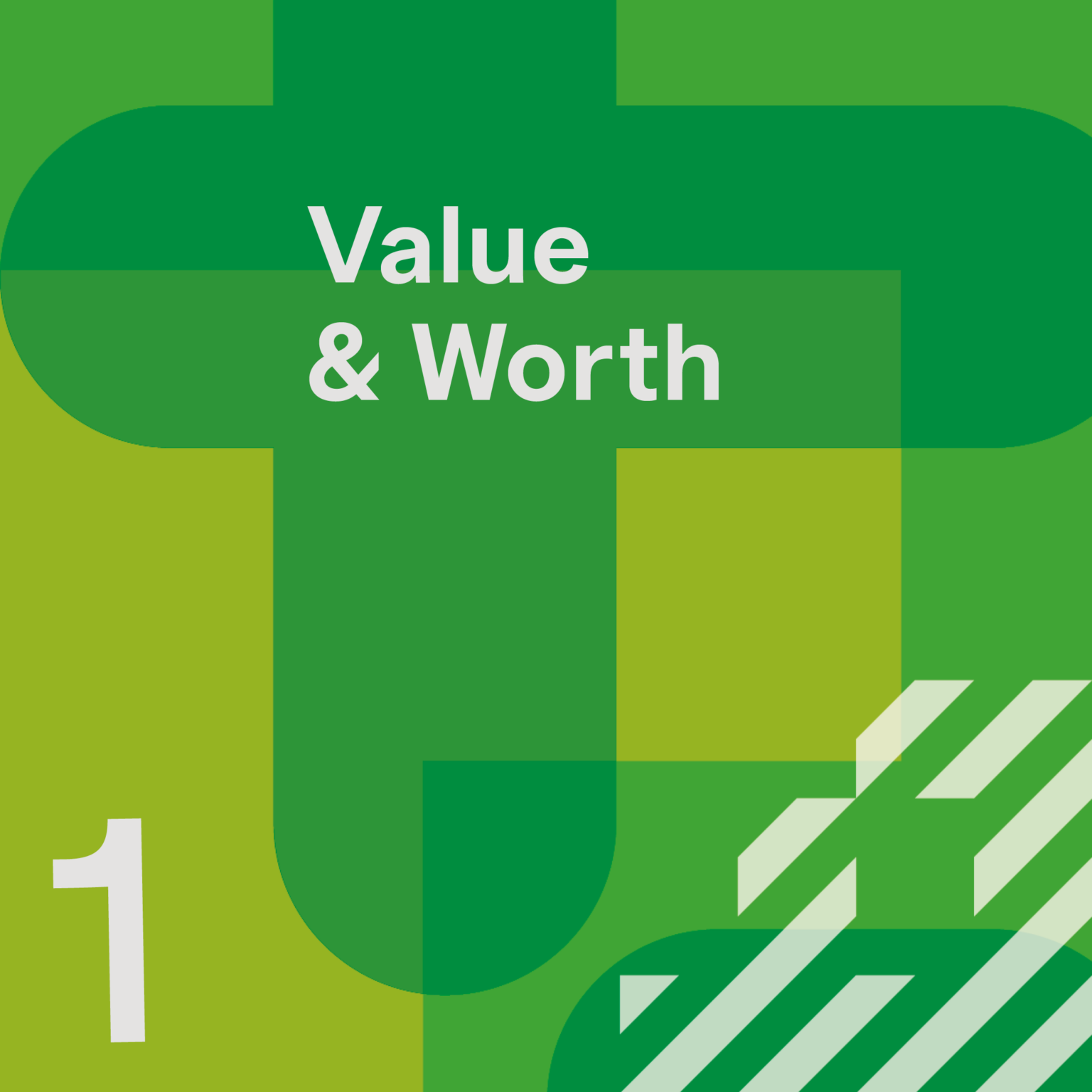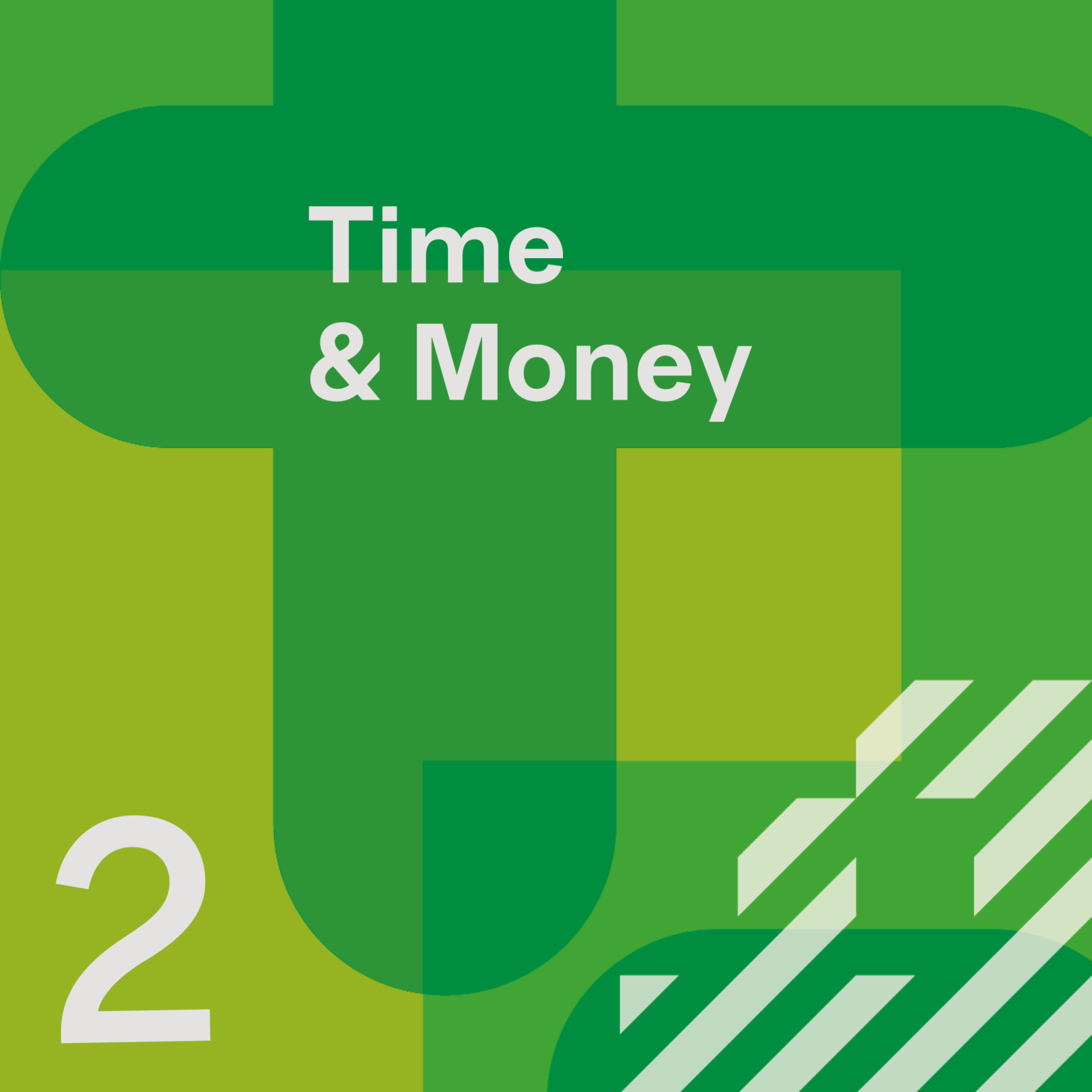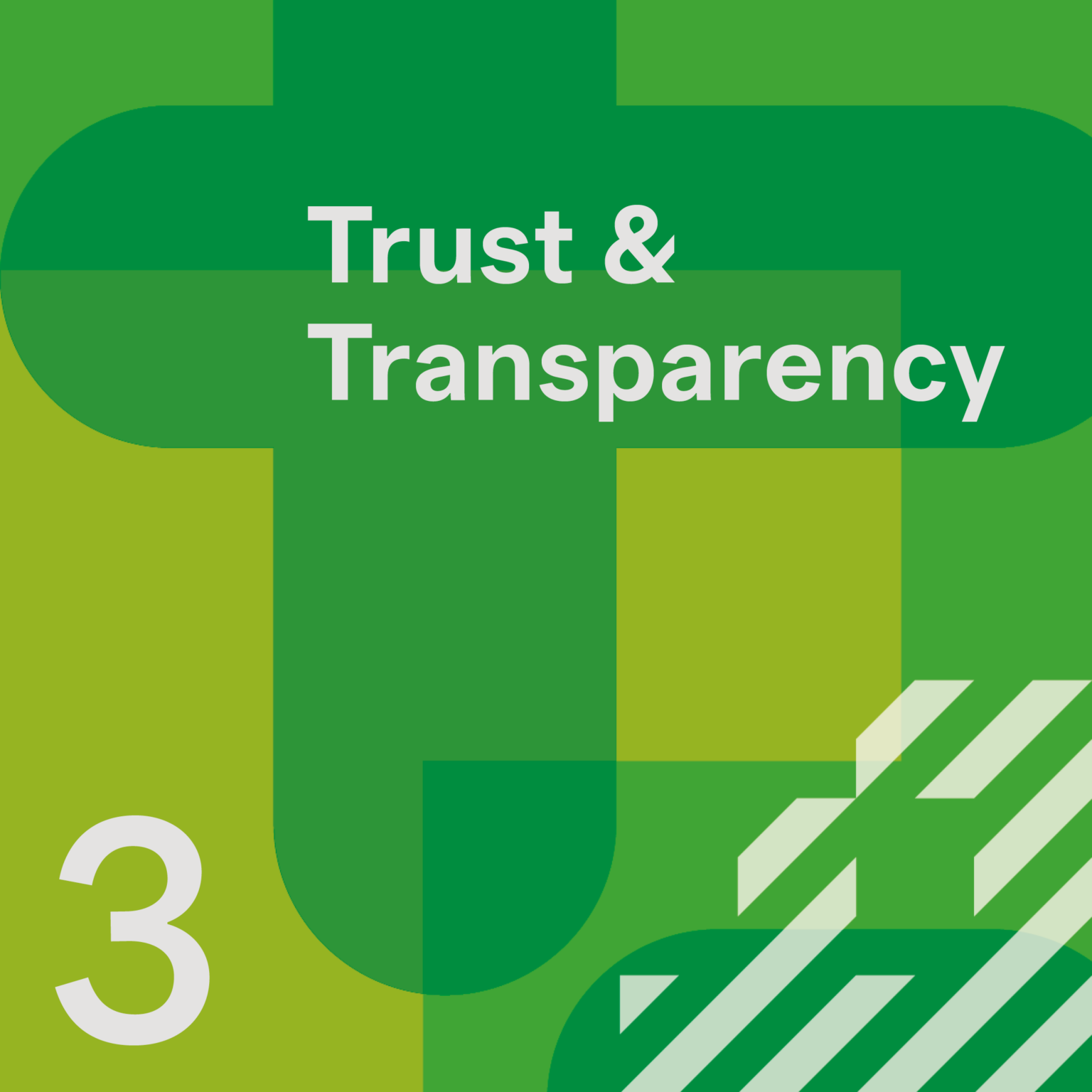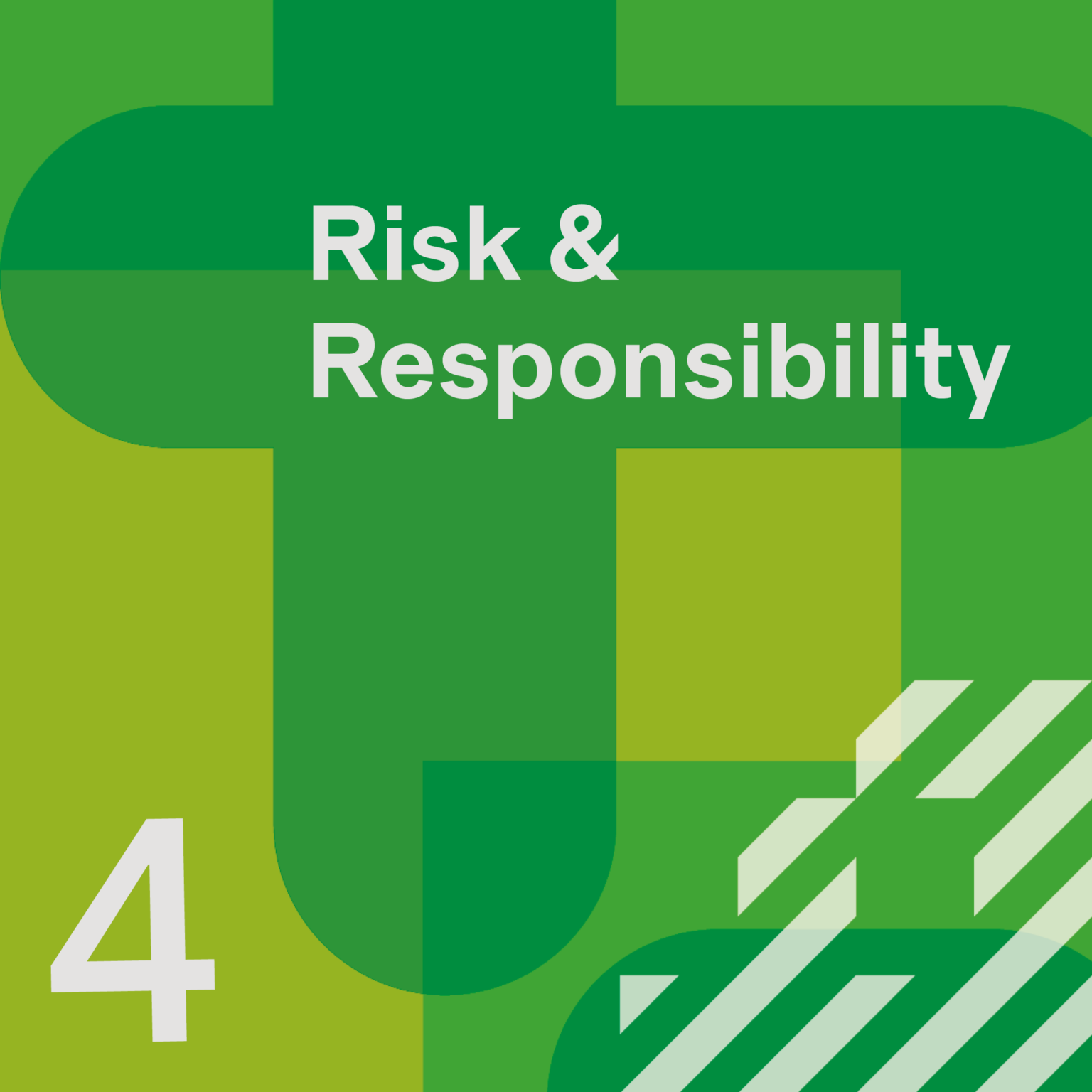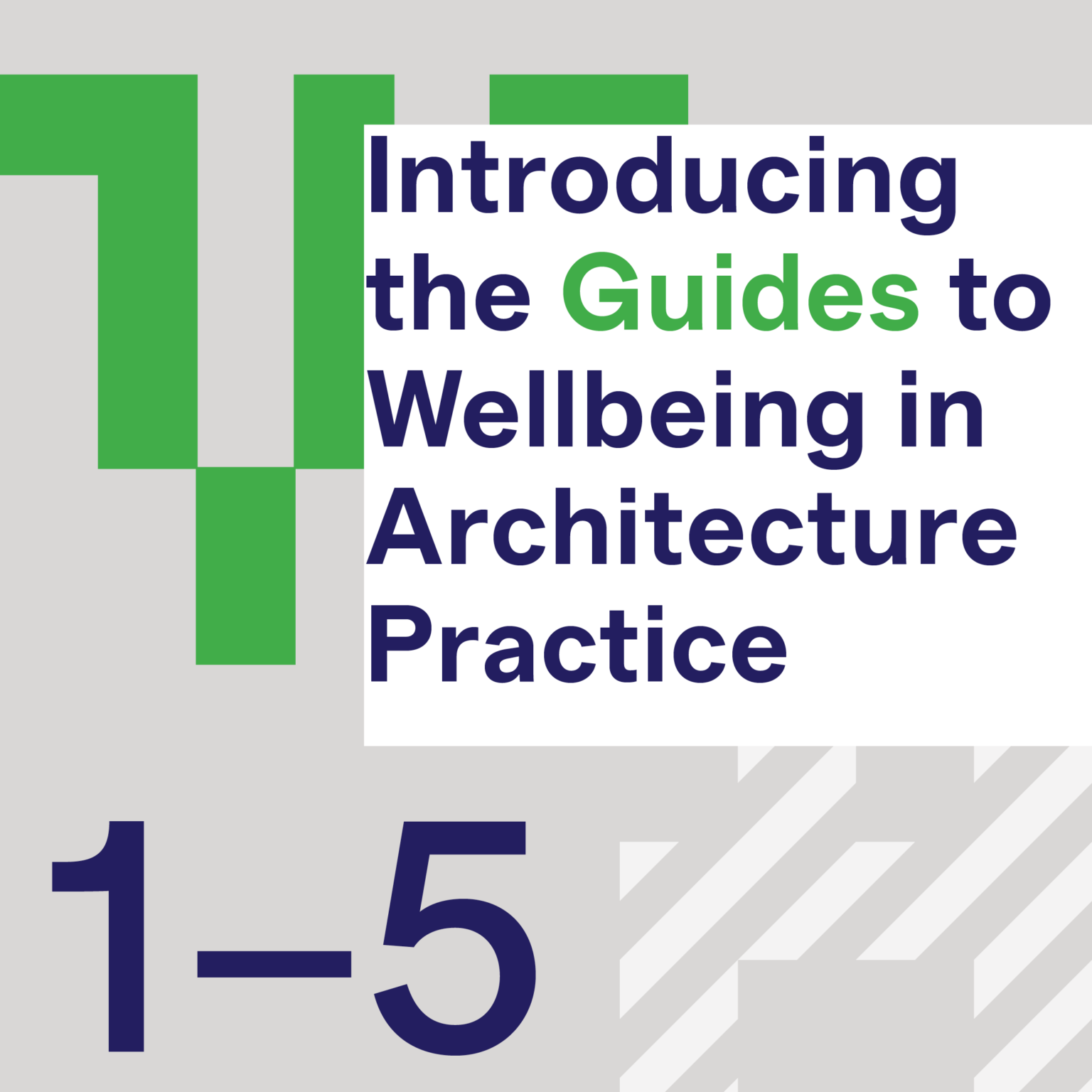The professional risks and responsibilities facing the architecture profession have a significant impact on wellbeing. Architects are under increasing pressure to take on ever more risk and fulfil a growing list of professional obligations. These include increased risk exposure in certain procurement models, partial services, free advice or pro bono services, and compliance challenges.
At the same time, the role of the architect continues to evolve and architects’ fees are being pushed to often unsustainable levels. The increasingly adversarial nature of doing business, including financial stress from disputes and legal challenges, adds to the pressure. Burnout is common. Within this context, poorly managed risk and increased responsibilities are linked with more intense and acute levels of stress and anxiety.
The topic of risk and responsibility is wide-ranging and complex. This guide focuses on factors affecting wellbeing, as identified by the research project – procurement processes, timelines and deadlines, fees and contractual arrangements. It provides ideas for practices, individuals and professional organisations on addressing these issues in a way that benefits all.
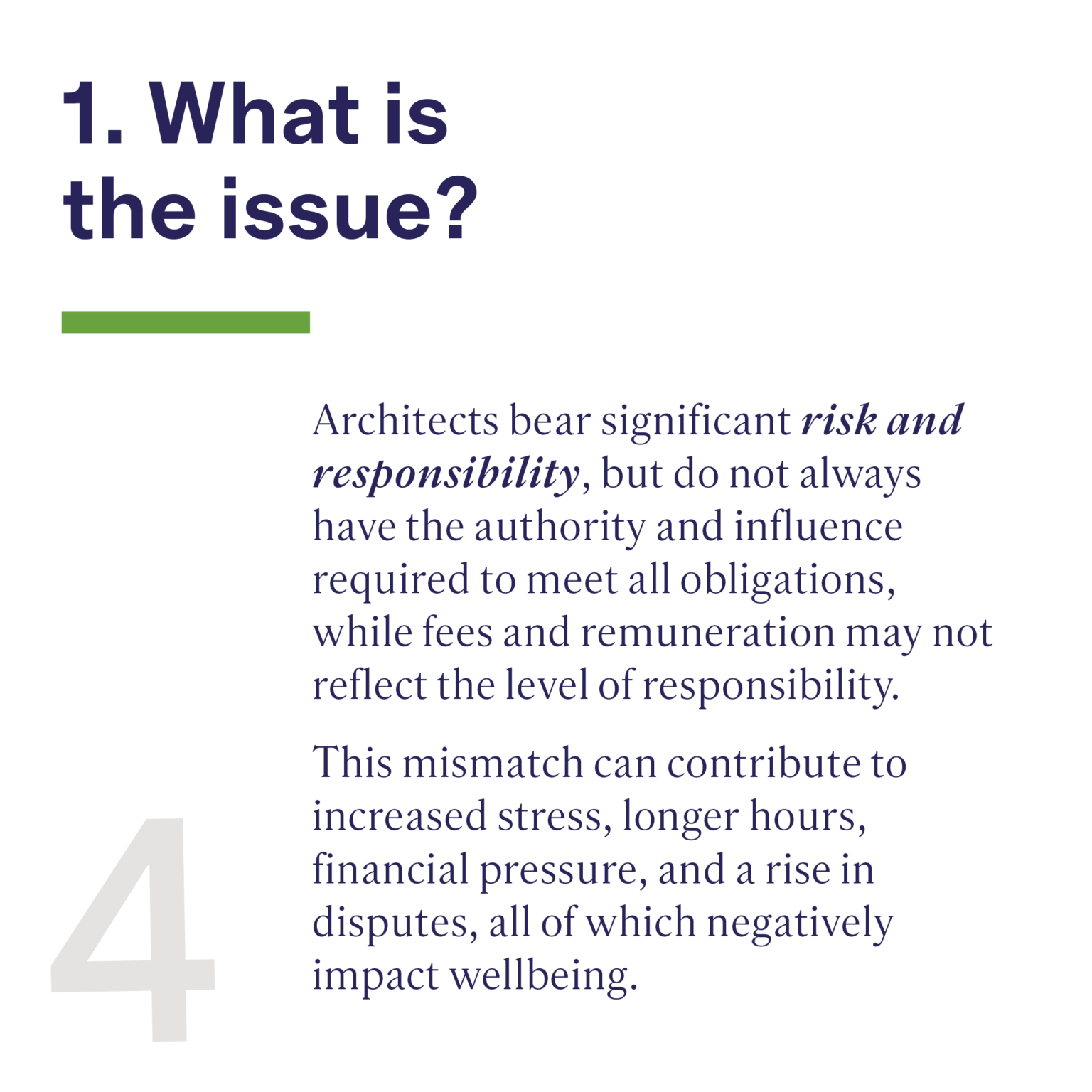
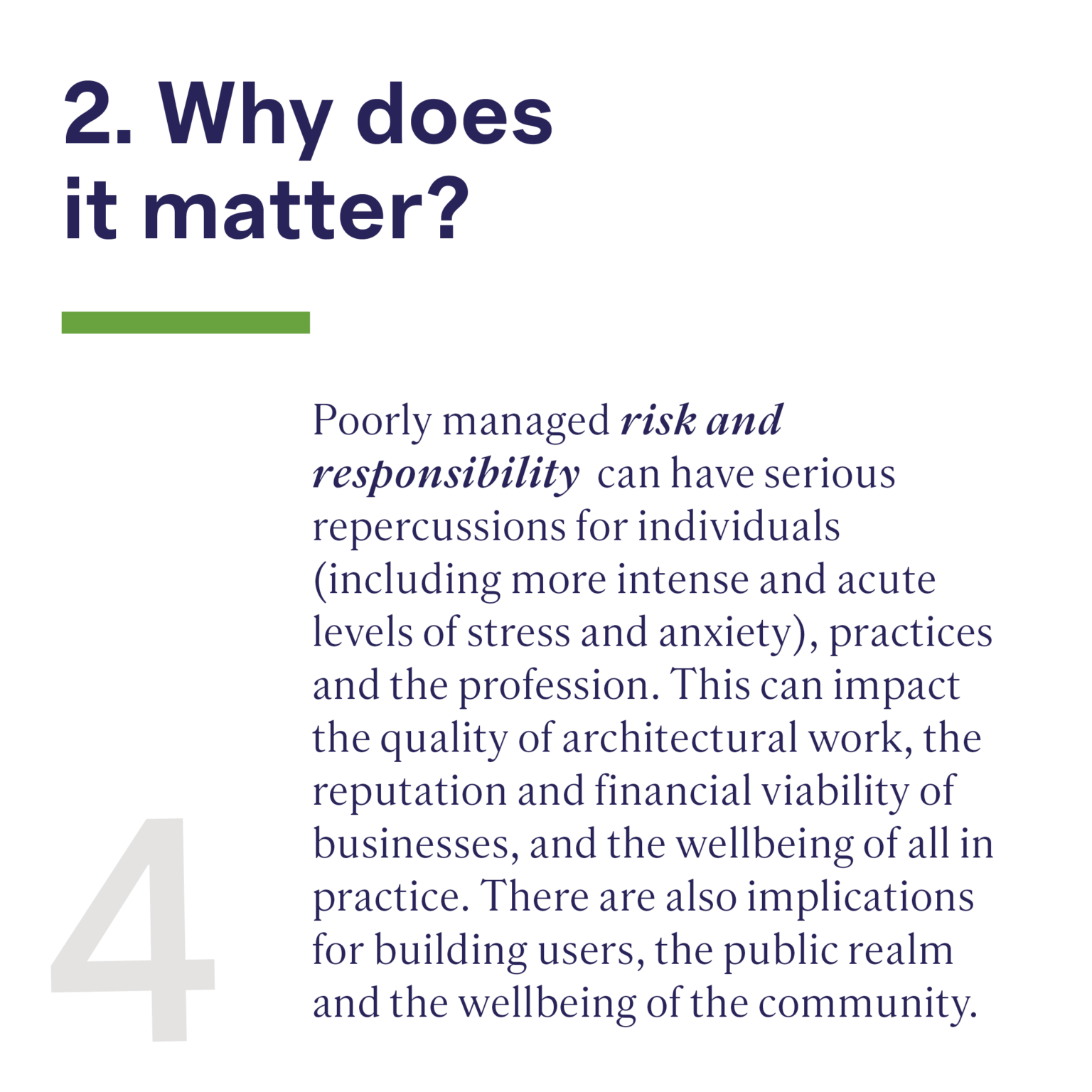
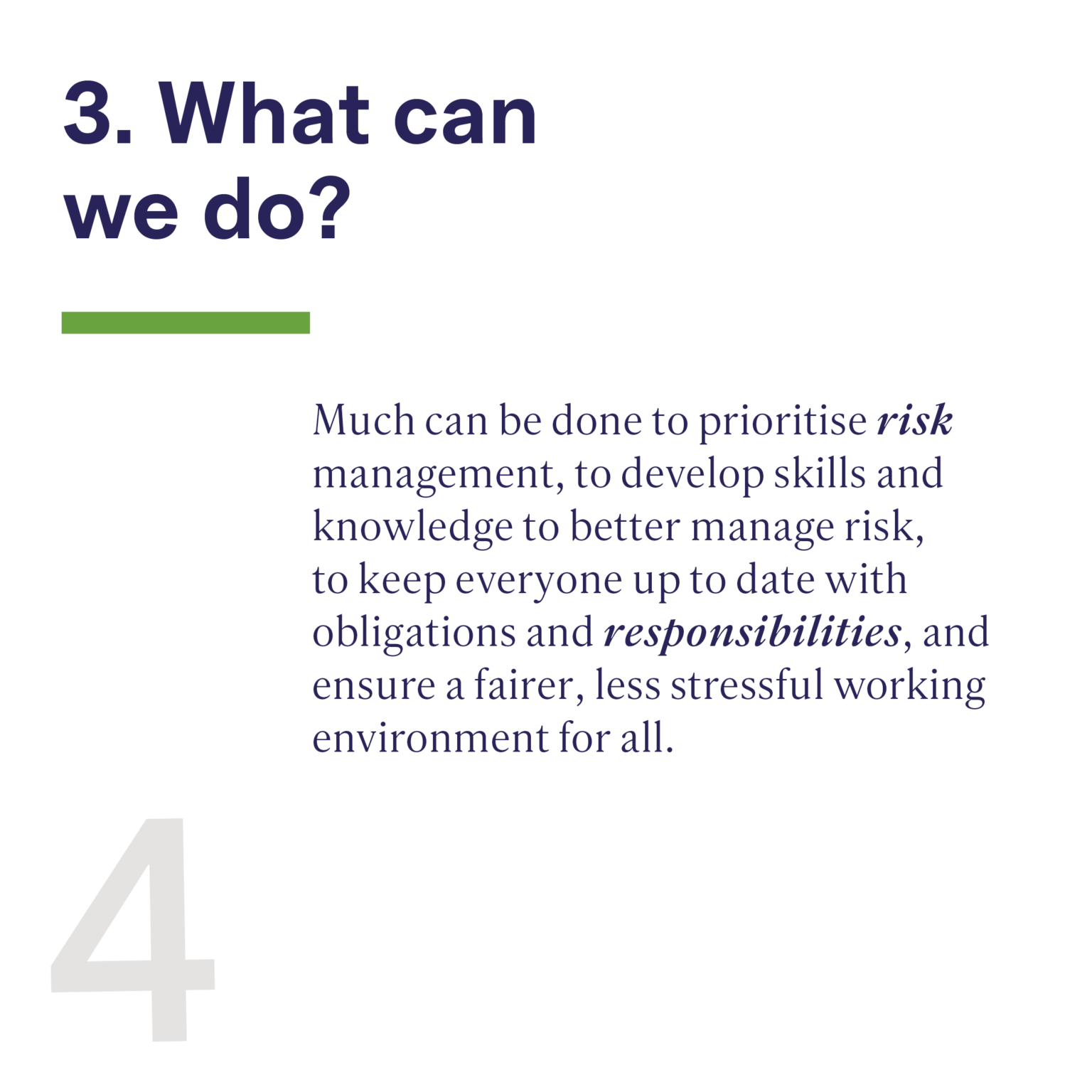
The Guides to Wellbeing in Architecture Practice are an outcome of the Wellbeing of Architects research project. They were published by Parlour in May 2024.
Primary authors for this guide are Susie Ashworth and Alison McFadyen. It was edited by Susie Ashworth and Justine Clark, with input from Naomi Stead, Kirsten Orr and Maryam Gusheh. The project was managed by Alison McFadyen, with additional writing and research by Byron Kinnaird, Naomi Stead, Liz Battiston and Vicki Leibowitz. Full credits are available in the Guide acknowledgements.
Read the full set of guides
DISCLAIMER These guides provide overviews only, with prompts for thought and ideas for consideration. They are not a substitute for professional or legal advice.
Individuals and practices should seek advice regarding policy on wellbeing, employment and human resources, as well as advice about particular situations, from their legal, HR or other business adviser. Like the other guides in this series, this does not offer medical opinion, diagnosis or advice – individuals should consult their health professional as appropriate.







